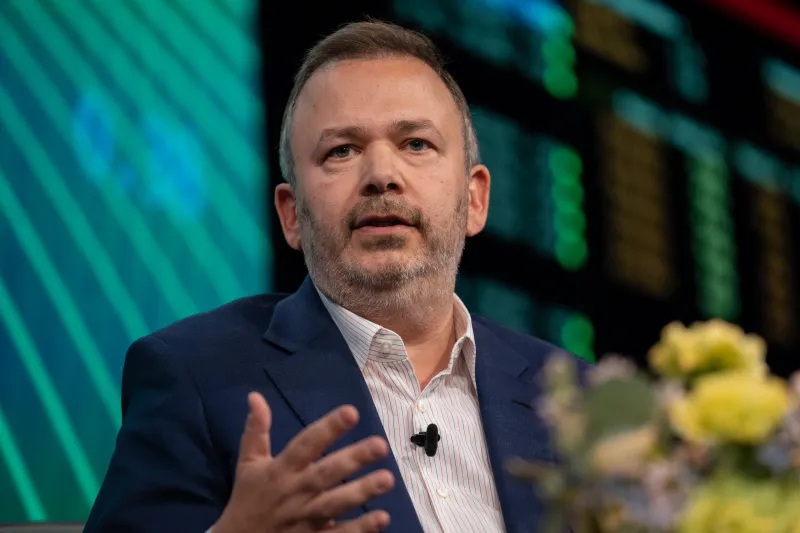Despite America’s political divisions, most of us agree that the right to vote is sacrosanct. Your right to participate in democratic processes, like next week’s presidential election, is one you do not expect to come under attack. A similar value has long applied to public companies: if you own a company’s stock, you have the right to be heard at annual shareholder meetings.
But now that right is being challenged by the New York Stock Exchange and Cboe Global Markets. Their first battleground is the approximately $550 billion closed-end fund, or CEF, market. They have asked the Securities and Exchange Commission to not require these publicly listed funds to hold annual meetings, denying shareholders the ability to elect board members. To the surprise of many, the SEC is now considering these proposals, which would exempt NYSE and Cboe-listed CEFs registered under the Investment Company Act of 1940 from the annual shareholder meeting requirement that has existed for more than 100 years. In addition, the proposed rule changes would allow CEFs to remove the ability of shareholders to elect directors annually and to otherwise participate in those meetings.
Why would exchanges want to strip shareholders of this fundamental right? Following the money reveals the answer.
The annual fees that CEFs pay to be listed are a major source of revenue for exchanges. To protect it, the exchanges are attempting to insulate CEFs’ hand-picked boards from elections where investors can hold them accountable. While activists like Saba certainly have a vested interest in defending our right to vote for the directors who represent us and to have a voice in corporate governance matters, the consequences of these proposals will be felt by all CEF shareholders. If these proposals are approved, CEF managers will be able to maintain obedient boards so they can continue to pocket their exorbitant management fees and expenses despite the empirical evidence that suggests stronger governance improves fund performance.
Since their fees are tied to asset levels rather than returns, it is no secret that misaligned CEF managers will do almost anything to preserve capital and shield themselves and their board members from accountability. Some managers have even stripped votes from CEF shareholders before annual meetings – a scheme that a federal court unsurprisingly determined broke the law. Other managers employ impossible-to-achieve majority vote standards as a maneuver to keep their directors on boards, even when they lose their elections by a massive landslide.
With shareholders increasingly voting to reform poorly governed CEFs, major exchanges and fund managers now want the SEC to run to the rescue. However, they seem to have overlooked the irony in asking an investor protection advocate to compromise the interests of a shareholder community that includes countless individuals and families.
As the commission assesses the implications of these proposals, it has already taken the first step toward acknowledging that they would be detrimental to the very shareholders the SEC’s mission obligates it to protect. In an order filed this month, the commission raised several concerns with the NYSE proposal –notably, whether it is actually “designed to protect investors and the public interest” as required by law.
In further reviewing the proposals, the commission must consider the other critical questions that shareholders have been asking for months – including, why don’t the NYSE and Cboe evaluate the benefit CEF investors receive from contested elections? Why don’t they address the unique investor protections required for CEF investors, as different from ETF investors? And most importantly, why don’t they acknowledge the losses the proposals would inflict on shareholders through lower stock prices?
To answer these questions, the commission must take a close look at the facts. CEF investors have already made it abundantly clear that they value their right to participate in annual meetings. In fact, hundreds of individual investors submitted comments to the SEC opposing the proposals and arguing that the right to annual meetings is a benefit – not a burden. In contrast, support for the proposals appears limited to just a handful of proponents: CEF managers, their employees, and their lobbyists.
With CEFs in the portfolios of millions of retail investors and retirees, the threat these proposals pose is even more egregious when viewed in light of these investors’ exit options. Many CEF investors are retirees who were sold CEFs by brokers receiving sizable commissions, not realizing their money would be trapped in a fund that trades at a significant discount. Unlike ETFs or mutual funds, CEFs leave no option for investors to redeem their shares at net asset value – meaning that annual meetings are investors’ only chance to express their views without taking a big financial hit.
Without annual meetings, CEF investors will be left powerless to hold poorly performing boards accountable – leading funds to trade at larger discounts and creating the potential for billions in losses. A cursory look at the trajectories of funds that eliminated annual meetings is all that is needed to understand the harm these proposals could cause for investors.
In 2020, the Dividend & Income Fund delisted itself from the NYSE because its board wanted to “avoid the burdens of governance.” Since delisting, DNI’s discount has unsurprisingly ballooned, and its shares currently trade at an approximately 35% discount to the value of its holdings. Similarly, Foxby Corp. has seen its trading price discount grow to 40% of its holdings since delisting in 2008. These examples make clear that when corporate democracy loses, so do ordinary shareholders.
Annual elections have been a right investors have relied on for over a century in CEFs. Without it, investors lose the crucial ability to elect directors annually and to have a voice in the future of their funds. The SEC has heard the concerns shareholders have voiced – now, it is its responsibility to act swiftly to reject these proposals in order to preserve one of the most fundamental rights of public market investors.
Boaz Weinstein is the founder and chief investment officer of Saba Capital Management, the world’s single largest investor in closed-end funds.







